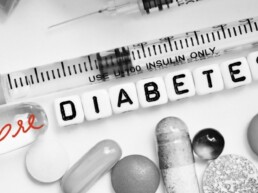Intermittent fasting is a popular dietary approach that involves alternating periods of fasting and non-fasting. It has been shown to have several health benefits, including weight loss, improved insulin sensitivity, and reduced inflammation. However, breaking an intermittent fast is just as important as the fast itself. In this post, I will go through some tips on how to break an intermittent fast safely and effectively.
1. Start small
Starting small when breaking an intermittent fast means gradually reintroducing food to your body, rather than jumping right into a large meal. This approach can help prevent any discomfort, digestive issues, or other adverse reactions that may occur when your body is not used to eating solid food after a period of fasting.

When breaking an intermittent fast, it is generally recommended to start with a small meal or snack, such as a piece of fruit, some vegetables, or a small portion of lean protein. This can help stimulate your digestive system without overloading it with too much food at once. You can then gradually increase the size and frequency of your meals over the course of a few days, allowing your body to adjust to the change.
It’s important to note that the specific amount of food that you should consume when breaking an intermittent fast can vary depending on factors such as your individual health status, the length of your fast, and your dietary goals. If you’re unsure about how much to eat when breaking your fast, consult with a healthcare professional or a registered dietitian who can provide personalized recommendations based on your needs.
In addition to starting with a small meal or snack, you can also consider breaking your fast with easily digestible foods, such as soups or smoothies, which can be gentler on your digestive system than solid foods. You may also want to avoid foods that are high in sugar or refined carbohydrates, which can cause a rapid rise in blood sugar levels and potentially lead to feelings of fatigue or sluggishness.
By starting small and gradually increasing the size and frequency of your meals, you can help your body transition from a state of fasting to a state of eating without causing any discomfort or digestive issues. Remember to listen to your body and adjust your approach as needed, and consult with a healthcare professional if you have any concerns or questions.
2. Focus on nutrient-dense foods
When breaking an intermittent fast, it’s essential to focus on nutrient-dense foods that will provide your body with the nutrients it needs. Nutrient-dense foods are those that are high in vitamins, minerals, and other essential nutrients but relatively low in calories. Examples of nutrient-dense foods include fruits, vegetables, whole grains, lean proteins, nuts, and seeds.
By focusing on nutrient-dense foods, you can help ensure that your body is getting the nutrients it needs to function properly after a period of fasting. This can help support your immune system, promote healthy digestion, and provide your body with the energy it needs to get through the day.
Some specific nutrient-dense foods to consider when breaking an intermittent fast include:
- Fruits and vegetables: These are excellent sources of vitamins, minerals, and fiber. Consider adding a variety of colorful fruits and vegetables to your meals, such as berries, leafy greens, bell peppers, and sweet potatoes.
- Whole grains: Whole grains are high in fiber, which can help promote healthy digestion and provide a sustained source of energy. Examples of whole grains include brown rice, quinoa, and whole wheat bread.

Leafy greens, beans, avocado and grilled tofu make for a healthy, protein-rich meal
- Lean proteins: Lean proteins, such as chicken, fish, tofu, and legumes, are important sources of amino acids, which are the building blocks of protein. These can help support muscle growth and repair after a period of fasting.
- Nuts and seeds: These are high in healthy fats, protein, and fiber, and can be a good source of energy and nutrition. Consider adding a handful of almonds, walnuts, or pumpkin seeds to your meals or snacks.
It’s also important to note that while nutrient-dense foods are important when breaking an intermittent fast, it’s also important to consume a balanced and varied diet overall.
In summary, focusing on nutrient-dense foods when breaking an intermittent fast can help support your body’s nutritional needs and provide the energy and nutrients it needs to function properly. Incorporating a variety of fruits, vegetables, whole grains, lean proteins, nuts, and seeds into your meals can help ensure that you’re getting the nutrients you need to thrive.
3. Avoid processed and high-fat foods
When breaking an intermittent fast, it’s important to avoid processed and high-fat foods, as these can cause discomfort, digestive issues, and potentially undo the benefits of the fast. Processed foods are typically high in added sugars, sodium, and other artificial ingredients that can cause inflammation, bloating, and other digestive issues. High-fat foods, particularly those that are high in saturated and trans fats, can also be difficult for your body to digest and may cause discomfort.
Here are some specific types of foods to avoid when breaking an intermittent fast:
- Highly processed foods: This includes packaged snacks, sweets, fast food, and other foods that are high in sugar, sodium, and other artificial ingredients. These can cause inflammation, digestive issues, and potentially undo the benefits of your fast.
- High-fat foods: While some healthy fats, such as those found in nuts, seeds, and avocados, can be beneficial for your health, high-fat foods that are high in saturated and trans fats can be difficult for your body to digest and may cause discomfort. Examples of high-fat foods to avoid when breaking a fast include fried foods, fatty meats, cheese, and heavy cream-based dishes.

- Foods high in added sugars: Consuming foods that are high in added sugars, such as sugary drinks and desserts, can cause rapid spikes in blood sugar levels, which can lead to feelings of fatigue, irritability, and other issues.
- Spicy foods: Spicy foods can be irritating to your digestive system and may cause discomfort, particularly if your body is not used to them.
Instead, when breaking an intermittent fast, focus on nutrient-dense foods, as we discussed earlier, and aim for a balanced diet that includes a variety of foods. This can help support your body’s nutritional needs and promote healthy digestion and overall well-being.
In summary, avoiding processed and high-fat foods when breaking an intermittent fast can help prevent digestive issues and discomfort, and ensure that you’re getting the nutrients you need to support your overall health. By focusing on whole, nutrient-dense foods, you can help ensure that your body is properly fueled and ready to tackle the day ahead.
4. Hydrate
Staying hydrated is important at all times, but it’s particularly important when breaking an intermittent fast. During a fast, your body may become dehydrated as it uses up its water stores. Replenishing your fluid levels is important to help your body function properly and avoid symptoms such as headaches, dizziness, and fatigue.
Here are some tips for staying hydrated when breaking an intermittent fast:
- Drink plenty of water: Aim to drink at least eight glasses of water a day. You may need to drink more if you live in a hot climate or are particularly active.
- Try herbal tea: Herbal tea can be a great way to hydrate and provide additional health benefits. Some types of tea, such as chamomile or peppermint, can also help soothe your stomach if you experience any digestive discomfort.
- Avoid sugary drinks: Sugary drinks, such as soda or juice, can cause a spike in your blood sugar levels and may cause you to become dehydrated more quickly. Stick to water, herbal tea, or other low-calorie beverages.
- Eat water-rich foods: Many fruits and vegetables are high in water and can help keep you hydrated. Consider incorporating watermelon, cucumbers, tomatoes, and leafy greens into your meals and snacks.
- Consider adding electrolytes: Electrolytes are important minerals, such as sodium, potassium, and magnesium, that help regulate fluid levels in your body. If you’re particularly active or live in a hot climate, consider adding an electrolyte supplement or sports drink to your diet to help replenish your electrolyte levels.

In summary, staying hydrated is important when breaking an intermittent fast to help your body function properly and avoid symptoms of dehydration. Drinking plenty of water, avoiding sugary drinks, and eating water-rich foods can help you stay hydrated and promote overall well-being. If you’re particularly active or live in a hot climate, consider adding an electrolyte supplement or sports drink to your diet to help replenish your electrolyte levels.
5. Listen to your body
Listening to your body is an essential aspect of breaking an intermittent fast. Intermittent fasting can be challenging for your body, and it’s important to pay attention to how you feel and adjust your approach as needed. This can help you avoid discomfort and ensure that you’re getting the nutrients you need to support your overall well-being.
Here are some tips for listening to your body when breaking an intermittent fast:
Start slow: When breaking a fast, it’s important to start slow and gradually reintroduce food into your diet. This can help prevent digestive issues and ensure that your body is able to handle the transition.
Pay attention to hunger signals: As you start eating again, pay attention to your body’s hunger signals. Don’t push yourself to eat more than you feel comfortable with, and stop eating when you feel satisfied.
Take note of any digestive issues: If you experience digestive issues such as bloating, gas, or diarrhea, it may be a sign that your body is having trouble adjusting to the food you’re eating. Consider adjusting your diet and reintroducing foods more slowly.
Consider working with a healthcare professional: If you have any underlying health conditions or concerns, it may be a good idea to work with a healthcare professional to develop a plan for breaking your fast.
Be flexible: Remember that everyone’s body is different, and what works for one person may not work for another. Be open to adjusting your approach as needed and listening to your body’s signals.
In summary, listening to your body is an important aspect of breaking an intermittent fast. Starting slow, paying attention to hunger signals, taking note of any digestive issues, and working with a healthcare professional if needed can help you break your fast safely and effectively. Remember to be flexible and adjust your approach as needed to support your overall well-being.
To conclude
Intermittent fasting has become an increasingly popular approach to weight loss and overall health in recent years, and breaking a fast is a crucial step in the process. However, it’s important to do it correctly to avoid digestive issues, discomfort, and other potential problems. By following the tips outlined in this article, you can help ensure that you break your fast safely and effectively.
Starting small, focusing on nutrient-dense foods, avoiding processed and high-fat foods, staying hydrated, and listening to your body are all key elements to breaking an intermittent fast. Additionally, it’s important to remember that everyone’s body is different, and what works for one person may not work for another. Be flexible, pay attention to your body’s signals, and don’t hesitate to adjust your approach as needed, as you learn how to break an intermittent fast.
Remember that intermittent fasting is just one approach to overall health and wellness, and it’s important to consult with a healthcare professional before making any significant changes to your diet or exercise routine. By working with a healthcare professional and taking a mindful approach to breaking your fast, you can support your overall well-being and achieve your health and fitness goals.
SHARE

Madhavi Shilpi
Nutritionist
Prediabetes Coach
Related
3 Weight Loss Myths
Losing weight is a common goal for many people, but with so much information…
Intermittent Fasting 101
Fasting has been practiced for centuries for religious and spiritual reasons.…
What is Prediabetes?
Have you been diagnosed with Prediabetes? Are you wondering what it actually…
Why Early Diagnosis of Prediabetes Is Key to Preventing Type 2 Diabetes
Introduction Imagine this: you’re feeling pretty healthy. Maybe you’re a…
32.8% of India Has Prediabetes — Are You Ignoring the Early Signs?
Introduction India is facing a serious health crisis: 32.8% of the…
How Modern Indian Diets Are Quietly Fuelling Insulin Resistance and Prediabetes
In today’s fast-paced world, the Indian diet is evolving to match modern…






